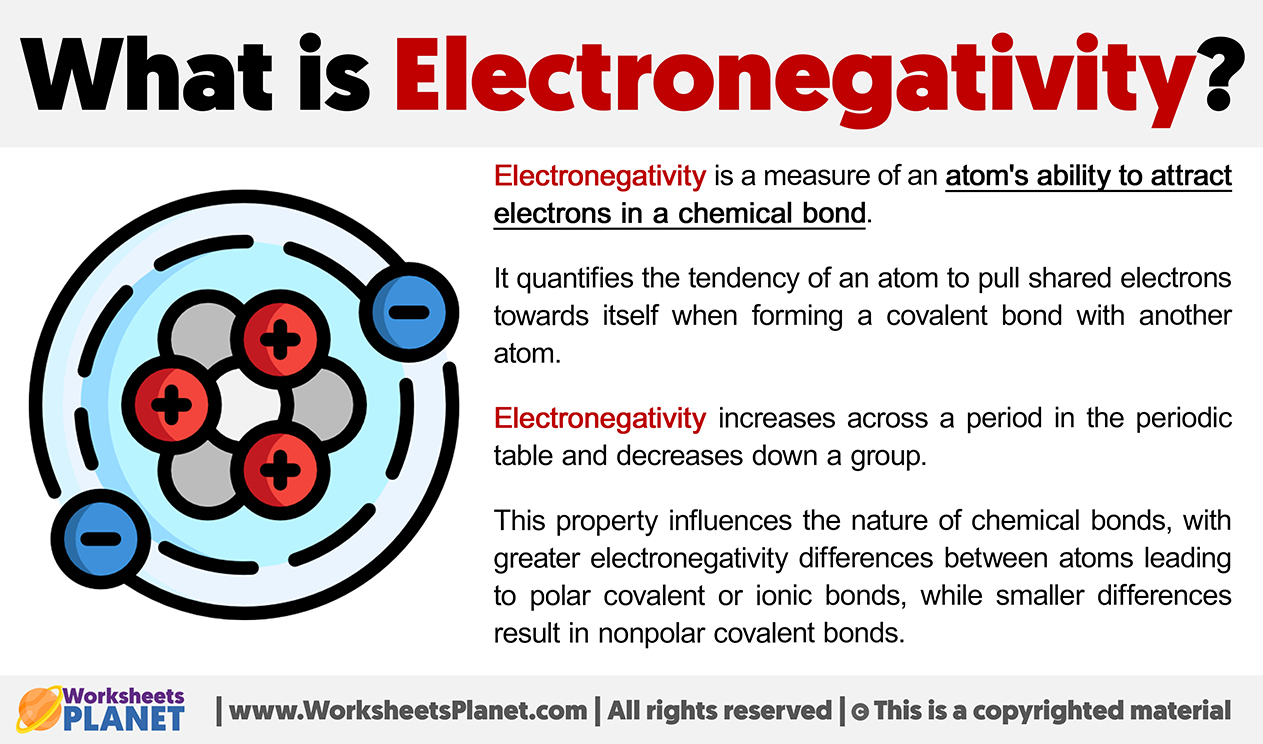Electronegativity is a measure of an atom’s ability to attract electrons in a chemical bond. It quantifies the tendency of an atom to pull shared electrons towards itself when forming a covalent bond with another atom.
Electronegativity increases across a period in the periodic table and decreases down a group.
This property influences the nature of chemical bonds, with greater electronegativity differences between atoms leading to polar covalent or ionic bonds, while smaller differences result in nonpolar covalent bonds.


